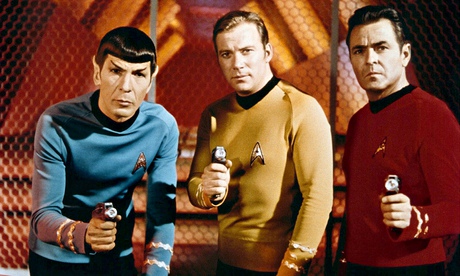
Forget about the rumours that Obama might be a Muslim, or not a native-born American: even before it began, his presidency was put at risk by a grammatical quibble.
Steven Pinker tells the story, with a snort of amusement, in his brainy, funny account of the messes we make when trying to cope with the irregularity and irrationality of English grammar. At Obama’s inauguration, he had to promise “to faithfully execute” the laws of the United States; but the chief justice who administered the oath balked at the split infinitive, and banished the intrusive adverb to the end of the sentence. Obama, repeating the formula, did likewise, then had worried whether the change might make his mandate unlawful, so the ceremony was performed all over again in private, with “faithfully” restored to prime position.
That, Pinker points out, is where it belongs, despite the pedants: the ban is a fussy genuflection to Latin, where infinitives can’t be split because they are single, indivisible words – “amare”, not “to love”. Captain Kirk is within his rights “to boldly go” wherever in the universe he pleases, which anyway sounds more enterprising than “to go boldly”.
Pinker also forgives Churchill, who in his most rousingly prophetic speech vowed that “We shall never surrender”. Since he was speaking in the second person on the nation’s behalf, he should have said “We will never surrender”. Did the mistake reveal a certain unease – a suspicion that Churchill’s personal determination wouldn’t be shared by all his countrymen? It hardly matters, because Britain won the war.
Pinker, a psycholinguist who teaches at Harvard, is nest-foulingly vitriolic about the obfuscations of academic prose, and classifies passages by critics such as Judith Butler and Fredric Jameson as verbal “sludge”. The theorists he mocks rely on abstraction to conceal the vacuity of what they’re purporting to say, and to make those who can’t talk the requisite talk feel stupid. Politicians meanwhile torment language to prevent it from saying anything at all, as when John Kerry recently announced that Obama was “desirous of trying to see how we can make our efforts in order to find a way to facilitate”, which merely meant, Pinker guesses, that “the president wanted to help”. But we should be grateful for such verbosity, which suggests the indecisive convolutions of the later Henry James: in the previous administration, President Bush sonorously asked: “Is our children learning?” while Dan Quayle, his goofy vice president, bossily erased “potato” on a school blackboard and corrected it to “potatoe”.
What interests Pinker is cognition, the impromptu mental adjustments we perform when trying to organise and articulate complex thoughts, and his book is a little too well furnished with analytical diagrams about sentence structure, with arrows looping round in circles and phrases splayed along diagonal axes. Luckily, it’s also full of Jewish jokes, Doonesbury cartoons, and innumerable bathetic specimens of bad writing: my favourite – a sentence sabotaged by the lack of a comma – is the summary of a world tour by Peter Ustinov, which allegedly included “encounters with Nelson Mandela, an 800-year-old demigod and a dildo collector”.
At its best, The Sense of Style is a comedy of linguistic bad manners, a compendium of hilarious gaffes. Pinker enjoys assembling the sottisier, but he knows that our judgments about usage are mostly provoked by snobbery, as when Brian Jones’s father, a church organist in Cheltenham, chastised the Rolling Stones for their improper lyrics and said they should have been singing “I can’t get any satisfaction”. We are warned against the righteous authoritarianism of those who turn conventions into commandments. Was Lynne Truss joking when she hoped that misusers of the apostrophe would be “struck by lightning, hacked up on the spot, and buried in an unmarked grave”? The bilious American critic John Simon apparently meant it when he likened linguistic criminals to “slave traders, child molesters, and the guards at Nazi death camps”.
In the end, Pinker’s earnest pedagogic aim is undercut by the title of his book, which admits that style is a “sense” – something instinctive or innate, absorbed almost intravenously, a gift not an acquisition. You learn to write by reading great writers, or good ones like Pinker (though he is culpably cliche-prone, and says on his first page that the style manual of Strunk and White is “studded with gems”). Having spent much of my life teaching, I’m now inclined to agree with Oscar Wilde, who disparaged education by declaring that “Nothing worth knowing can be taught”.

